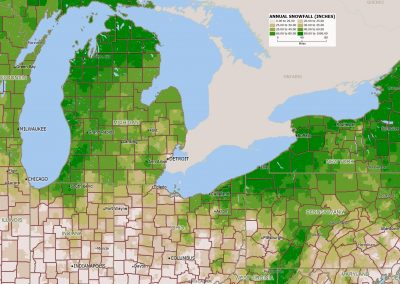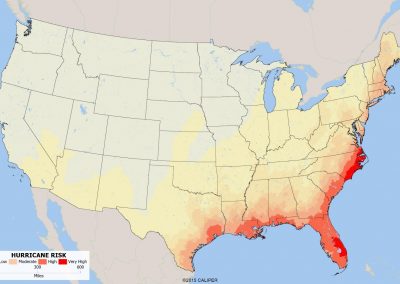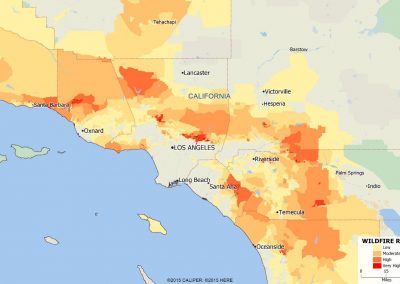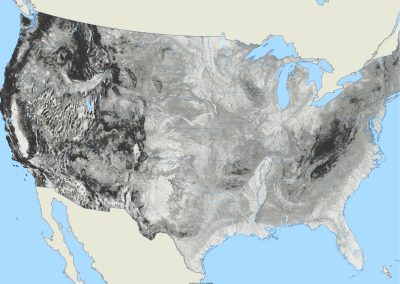Environmental
The environmental suite of data consists of several separate database components including Weather Risks, Seismological Risks, Wildfire Risk, Elevation and Terrain, Climate and Air Quality.
A wide range of applications benefit from these databases, including insurance underwriting, retail merchandising and real estate. In some cases, many of these variables are simply useful for reference purposes or general interest.
The weather risk data covers five separate risks:
- Hurricane
- Tornado
- Hail
- Damaging Winds
- Coastal Storm Surge Inundation
For automated merchandising systems, the climate data (average January, July, and annual temperatures, rainfall, and snowfall) can help to avoid costly stocking errors. The heating and cooling degree days can assist in determining demand for heating and cooling equipment, for example. These measures also are of general interest, especially in residential real estate applications.The seismology risk includes both earthquake risk and tsunami risk, and can provide surprising insights in areas outside the well-known seismic zones of the far western states.
The air quality measures can be important to individuals contemplating relocation, health care research, and commercial site selection and economic development.
The nature of the local terrain can be of great interest to real estate developers and others; local terrain variables include elevation (minimum, maximum, average), slope (average, maximum), and ruggedness. The TRI (Terrain Ruggedness Index) is a new index which encapsulates the overall nature of the local terrain.
Wildfires are an annual major risk in most areas of the western United States, and while large fires often burn in the rugged and generally unpopulated mountainous areas, the combination of dry conditions, heat, and winds can often lead to major disasters along what is known as the wildland-urban interface.
In addition, the coastal sea level rise risk index is useful for long term planning, assuming that sea levels may rise over the coming decades due to climate change.
Methodology and Data Sources
Get Started
Email us to find a reseller, or learn more about our data products.




